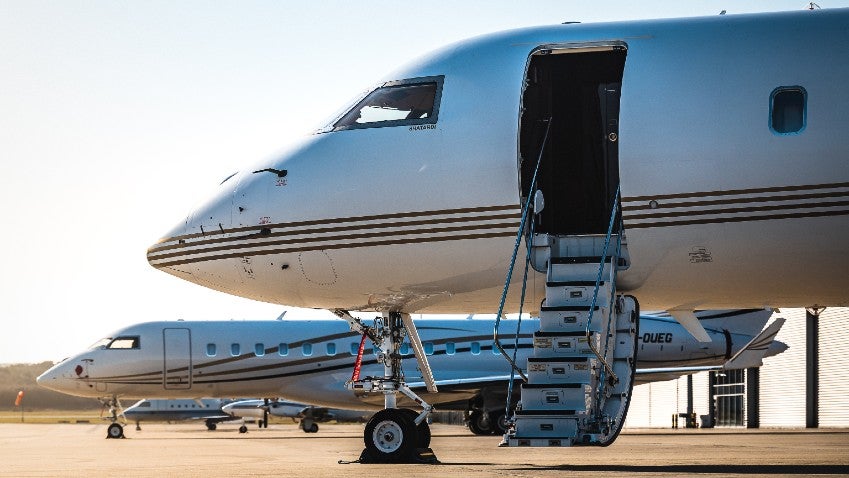
private jets to rent
Add a review FollowOverview
-
Founded Date June 29, 2016
-
Sectors Business
-
Posted Jobs 0
-
Viewed 39
Company Description
The Rise of Private Jet Flights: A Case Study on Luxury And Convenience

Lately, the private jet industry has experienced a remarkable transformation, driven by an rising demand for luxurious travel, comfort, and efficiency. This case research delves into the elements contributing to the rise of private jet flights, the demographics of their customers, the economic implications, and the environmental concerns that accompany this mode of transportation.
The Evolution of Private Jet Travel
Historically, private jet travel was reserved for the elite—business tycoons, celebrities, and authorities officials. Nonetheless, the appearance of fractional possession fashions and jet card programs has democratized access to private aviation. Companies like NetJets, Flexjet, and Wheels Up have introduced modern enterprise models that permit individuals to purchase shares in jets or pre-buy flight hours, making private jet travel more accessible to a broader audience.
The COVID-19 pandemic further accelerated this trend. As industrial airlines faced significant disruptions, travelers sought safer, extra managed environments. For more information in regards to private jet charter price take a look at the webpage. Private jets provided a method to bypass crowded airports and minimize contact with others, making them an interesting choice for those who might afford it. The industry saw a surge in demand, with many corporations reporting document sales and flight hours.
Demographics of Private Jet Users
The demographic profile of private jet users has expanded past the normal wealthy elite. Whereas excessive-net-worth people (HNWIs) still comprise a significant portion of the clientele, an increasing variety of entrepreneurs, executives, and even families are choosing private flights. According to a report by the global Enterprise Aviation Association (GBAA), the common age of private jet users has decreased, with millennials and Gen Z travelers coming into the market.
This shift could be attributed to a number of factors, together with the rise of distant work and the gig financial system, which permits people to prioritize flexibility and time efficiency. Furthermore, the youthful era values experiences over material possessions, leading them to invest in travel that enhances their way of life. Because of this, private jet companies are adapting their choices to cater to this new demographic, emphasizing personalization and unique travel experiences.
Financial Implications
The growth of private jet travel has vital financial implications. The business contributes billions to the worldwide economy through job creation, aircraft manufacturing, and associated services similar to upkeep, catering, and ground transportation. In the United States alone, the business aviation sector supports roughly 1.2 million jobs and generates over $a hundred and fifty billion in economic output yearly.
Moreover, the rise of private aviation has spurred investment in infrastructure. Airports are more and more recognizing the need to accommodate private jets, leading to the enlargement of mounted-base operators (FBOs) and devoted terminals. This investment not solely enhances the journey expertise for private jet users but additionally creates alternatives for native economies.
However, the trade isn’t without its challenges. The excessive operational prices associated with private jets, together with gasoline, upkeep, and crew salaries, necessitate a robust business model. Corporations must navigate fluctuating gasoline prices, regulatory changes, and competition from different modes of transportation, together with business airways and emerging technologies like electric vertical takeoff and touchdown (eVTOL) aircraft.
Environmental Concerns
As the private jet business continues to grow, environmental considerations have come to the forefront. Private jets are often criticized for their carbon footprint, as they emit considerably extra greenhouse gases per passenger in comparison with business airlines. In response, a number of companies are taking steps to mitigate their environmental impact.
One notable initiative is the adoption of sustainable aviation fuels (SAFs), which might significantly scale back greenhouse gasoline emissions. Firms like JetBlue and United Airways have committed to utilizing SAFs as part of their sustainability methods, and private jet operators are following go well with. Additionally, some corporations are investing in carbon offset packages, allowing purchasers to compensate for their carbon emissions by funding renewable power tasks or reforestation efforts.

Furthermore, advancements in expertise are paving the way in which for extra environmentally pleasant private aviation. The development of electric and hybrid aircraft has gained momentum, with a number of corporations engaged on prototypes that promise to cut back emissions and working prices. While these improvements are still in the early stages, they hold the potential to transform the private jet business in the approaching years.
The way forward for Private Jet Travel
Trying ahead, the way forward for private jet travel seems promising, with a number of traits shaping its trajectory. The continued demand for customized travel experiences, coupled with developments in expertise, will likely drive innovation within the business. Companies that can provide versatile, on-demand companies while prioritizing sustainability will likely be nicely-positioned to thrive.
Moreover, the integration of digital platforms and apps is revolutionizing the booking course of for private jet travel. Users can now entry actual-time data, evaluate prices, and guide flights with only a few clicks, making private aviation extra user-pleasant than ever. This ease of entry is predicted to draw an excellent wider audience, further fueling the business’s progress.
In conclusion, the rise of private jet flights represents a big shift within the journey landscape, pushed by altering demographics, economic factors, and environmental issues. As the business continues to evolve, it will be essential for stakeholders to stability luxury and convenience with sustainability and social responsibility. The future of private aviation lies in its capacity to adapt to the needs of a various clientele while addressing the urgent challenges of our time.
